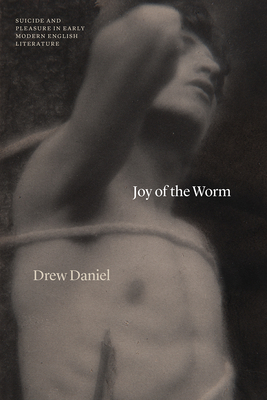Joy of the Worm: Suicide and Pleasure in Early Modern English Literature

Joy of the Worm: Suicide and Pleasure in Early Modern English Literature
Consulting an extensive archive of early modern literature, Joy of the Worm asserts that voluntary death in literature is not always a matter of tragedy. In this study, Drew Daniel identifies a surprisingly common aesthetic attitude that he calls "joy of the worm," after Cleopatra's embrace of the deadly asp in Shakespeare's play--a pattern where voluntary death is imagined as an occasion for humor, mirth, ecstatic pleasure, even joy and celebration. Daniel draws both a historical and a conceptual distinction between "self-killing" and "suicide." Standard intellectual histories of suicide in the early modern period have understandably emphasized attitudes of abhorrence, scorn, and severity toward voluntary death. Daniel reads an archive of literary scenes and passages, dating from 1534 to 1713, that complicate this picture. In their own distinct responses to the surrounding attitude of censure, writers including Shakespeare, Donne, Milton, and Addison imagine death not as sin or sickness, but instead as a heroic gift, sexual release, elemental return, amorous fusion, or political self-rescue. "Joy of the worm" emerges here as an aesthetic mode that shades into schadenfreude, sadistic cruelty, and deliberate "trolling," but can also underwrite powerful feelings of belonging, devotion, and love.
PRP: 204.00 Lei
Acesta este Prețul Recomandat de Producător. Prețul de vânzare al produsului este afișat mai jos.
183.60Lei
183.60Lei
204.00 LeiLivrare in 2-4 saptamani
Descrierea produsului
Consulting an extensive archive of early modern literature, Joy of the Worm asserts that voluntary death in literature is not always a matter of tragedy. In this study, Drew Daniel identifies a surprisingly common aesthetic attitude that he calls "joy of the worm," after Cleopatra's embrace of the deadly asp in Shakespeare's play--a pattern where voluntary death is imagined as an occasion for humor, mirth, ecstatic pleasure, even joy and celebration. Daniel draws both a historical and a conceptual distinction between "self-killing" and "suicide." Standard intellectual histories of suicide in the early modern period have understandably emphasized attitudes of abhorrence, scorn, and severity toward voluntary death. Daniel reads an archive of literary scenes and passages, dating from 1534 to 1713, that complicate this picture. In their own distinct responses to the surrounding attitude of censure, writers including Shakespeare, Donne, Milton, and Addison imagine death not as sin or sickness, but instead as a heroic gift, sexual release, elemental return, amorous fusion, or political self-rescue. "Joy of the worm" emerges here as an aesthetic mode that shades into schadenfreude, sadistic cruelty, and deliberate "trolling," but can also underwrite powerful feelings of belonging, devotion, and love.
Detaliile produsului











